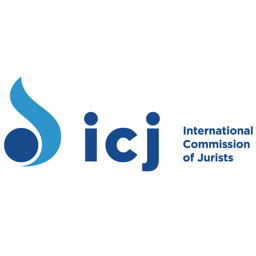 In a report published today, Judges for Judges and the ICJ analyze disciplinary proceedings against Bulgarian Judge Miroslava Todorova in relation to international standards on judicial independence and accountability.
In a report published today, Judges for Judges and the ICJ analyze disciplinary proceedings against Bulgarian Judge Miroslava Todorova in relation to international standards on judicial independence and accountability.
On 12 July 2012, the Supreme Judicial Council of Bulgaria dismissed Judge Miroslava Todorova, at that time a judge of the Sofia City Court and Chairperson of the Bulgarian Judges Association, on the grounds that she was responsible for delays in a number of cases. Subsequently, Judges for Judges and the ICJ followed the disciplinary proceedings against Todorova and sent trial observers to Sofia on two occasions, in May 2013 and November 2014.
In their findings, the ICJ and Judges for Judges do not address whether, and if so which, disciplinary sanctions may have been appropriate in this case. They note, however, that the disciplinary proceedings concerned delays, constituting judicial misconduct, in a context where according to many internal and external observers the workload between the courts is divided unevenly and may be very high for some.
 The two organizations also note that, as the second three-judge panel pointed out, the overall organization of the workflow was never properly considered in considering and reaching a determination in the disciplinary case. With the quashing of the second three-judge panel’s decision, likewise other relevant circumstances were not taken into account. Furthermore, the report finds, disciplinary practice in Bulgaria is deficient in respect of its lack of predictability and consistency, and doubts expressed by many observers as to the independence of the Judicial Service Council muddy the waters further. The 2013 amendments to the legal framework only partially served to remedy the disciplinary practice’s deficiencies. In particular, a full right of defence that includes the opportunity for the defendant to address all arguments and evidence remained wanting at the time of the Todorova proceedings.
The two organizations also note that, as the second three-judge panel pointed out, the overall organization of the workflow was never properly considered in considering and reaching a determination in the disciplinary case. With the quashing of the second three-judge panel’s decision, likewise other relevant circumstances were not taken into account. Furthermore, the report finds, disciplinary practice in Bulgaria is deficient in respect of its lack of predictability and consistency, and doubts expressed by many observers as to the independence of the Judicial Service Council muddy the waters further. The 2013 amendments to the legal framework only partially served to remedy the disciplinary practice’s deficiencies. In particular, a full right of defence that includes the opportunity for the defendant to address all arguments and evidence remained wanting at the time of the Todorova proceedings.
In the report, the ICJ and Judges for Judges also note the animosity towards Todorova from certain quarters in the Executive and SJC for her activities as the chair of the BJA in defence of judicial independence. Under the circumstances, there is an appearance that the disciplinary proceedings against Todorova were instituted and pursued selectively, and the system of the disciplinary proceedings in Bulgaria does not provide sufficient safeguards to dispel this appearance.
instituted and pursued selectively, and the system of the disciplinary proceedings in Bulgaria does not provide sufficient safeguards to dispel this appearance.
The disciplinary proceedings against Todorova demonstrate why it is crucial that accountability mechanisms be independent not only in theory but in practice, and for such mechanisms to be in some way themselves publicly accountable.
Bulgaria-The case of Todorova-Publications-Reports-Trial observation reports (full report, in PDF).
For additional background, see:
ICJ Practitioners Guide no 13, Judicial Accountability (2016, in PDF)
and more generally:
ICJ Practitioners Guide No 1, International Principles on the Independence and Accountability of Judges, Lawyers and Prosecutors (2007, in PDF)
